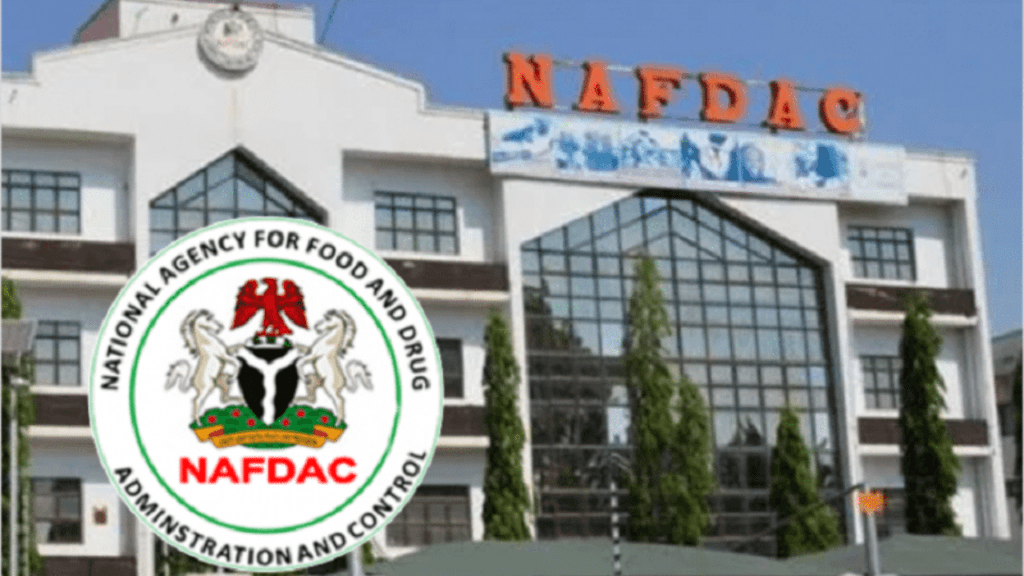In a bid to boost non-oil export trade, the National Agency for Food and Drug Administration Control (NAFDAC) has collaborated with export stakeholders to end food export rejection.
The collaboration was made known in a statement by NAFDAC Resident Media Consultant, Mr Olusayo Akintola, on Sunday in Abuja.
The agreement for collaboration was reached at the NAFDAC Export Stakeholder’s Interactive Session on draft export regulation with Cocoa Processors Association of Nigeria (COPAN) and Network of Practicing Non-oil Exporters of Nigeria (NPNEN).
Also at the meeting were the Lagos Chamber of Commerce and Industry (LCCI) and the Nigerian Association of Chambers of Commerce, Industry, Mines, and Agriculture (NACCIMA).
The statement quoted NAFDAC Director-General, Prof. Mojisola Adeyeye, allaying the fear initially expressed by cocoa stakeholders in the draft cocoa regulations posted on NAFDAC website for comments.
Adeyeye said the session was aimed at creating a platform to discuss critical issues of trade facilitation and how the agency and stakeholders in the export value chain can forge a common front.
According to her, the meeting is also aimed at how NAFDAC and stakeholders can speak with one voice for the mutual good of the country.
She noted that regulations are legal instruments for the control and elucidation of standards and compliance of all stakeholders in the manufacture, importation, exportation, distribution, and advertising sectors.
The NAFDAC boss said that the regulations derived from the NAFDAC enabling enactments stipulate red lines and penalties against infringement.
She explained that NAFDAC, which is now a World Health Organisation (WHO) ML3 regulatory agency, has under her leadership, updated and gazetted 21 new regulations covering many areas of the agency’s regulatory activities.
Adeyeye said that export regulations are just one of the several regulations that are in the process of being gazetted into law.
“As you are all aware, often, our regulated products which are packaged, and for most of the time, exported without NAFDAC certification fail at the entry borders and reports have accumulated to put Nigeria at a disadvantage in international commerce,’’ she said.
She lamented that a few stakeholders’ products are already on the red list of some importing nations, adding that this has been the outcome of years of poor oversight, lack of regulation and supervision of the quality and safety components of regulated products.
Adeyeye said the enabling laws have placed the responsibility of regulation and control of the quality and safety of these products on NAFDAC.
She added that the agency has continued to pursue regulatory interventions at both local and international levels.
The NAFDAC boss said that the purpose was to ensure that the nation was not totally and completely banned from exporting any kind of food product in international commerce.
Adeyeye, however, emphasised that regulatory interventions are critical for the survival of Nigeria’s trade across international borders where trade laws and compliance are viewed with serious evaluation.
‘’Today’s engagement is therefore meant to put these concerns in perspective, to bridge the knowledge gap and allay all fears to foster the necessary collaboration required to move our regulated product exports to the desired rating in international trade,” she said.
The NAFDAC boss explained that regulation of exports is not a revenue-generating opportunity for the agency.
She said NAFDAC’s regulatory role is to facilitate unimpeded trade between the exporters and the importing countries to eliminate food export rejection in the EU countries and the U.S. and adhere to international standards.
She assured the participants that if a product for export is already registered with NAFDAC, the agency has less work to do, stressing that companies on the agency’s database also require fewer visitations.
“The most important thing is to have confidence in your product. For us what’s most important is that your product is not rejected in the importing country,” she said.
She disclosed that handholding would start with cocoa producers based on the presumption that some of them are already registered with the agency while those that are not registered will equally be accommodated.
“We will look at those on our records and categorise them into low, medium and high risk which requires random visitations for those that have been complying with the regulatory requirements,” Adeyeye said.
The statement also quoted the Director-General of NACCIMA, Dr Olusola Obajimu, noting that the proposed regulation was to achieve global standards and ensure Nigeria realises its export potential.
Obajimu pledged the support of stakeholders to ensure that the nation improves its foreign exchange revenue drive through non-oil export trade in collaboration with NAFDAC.

